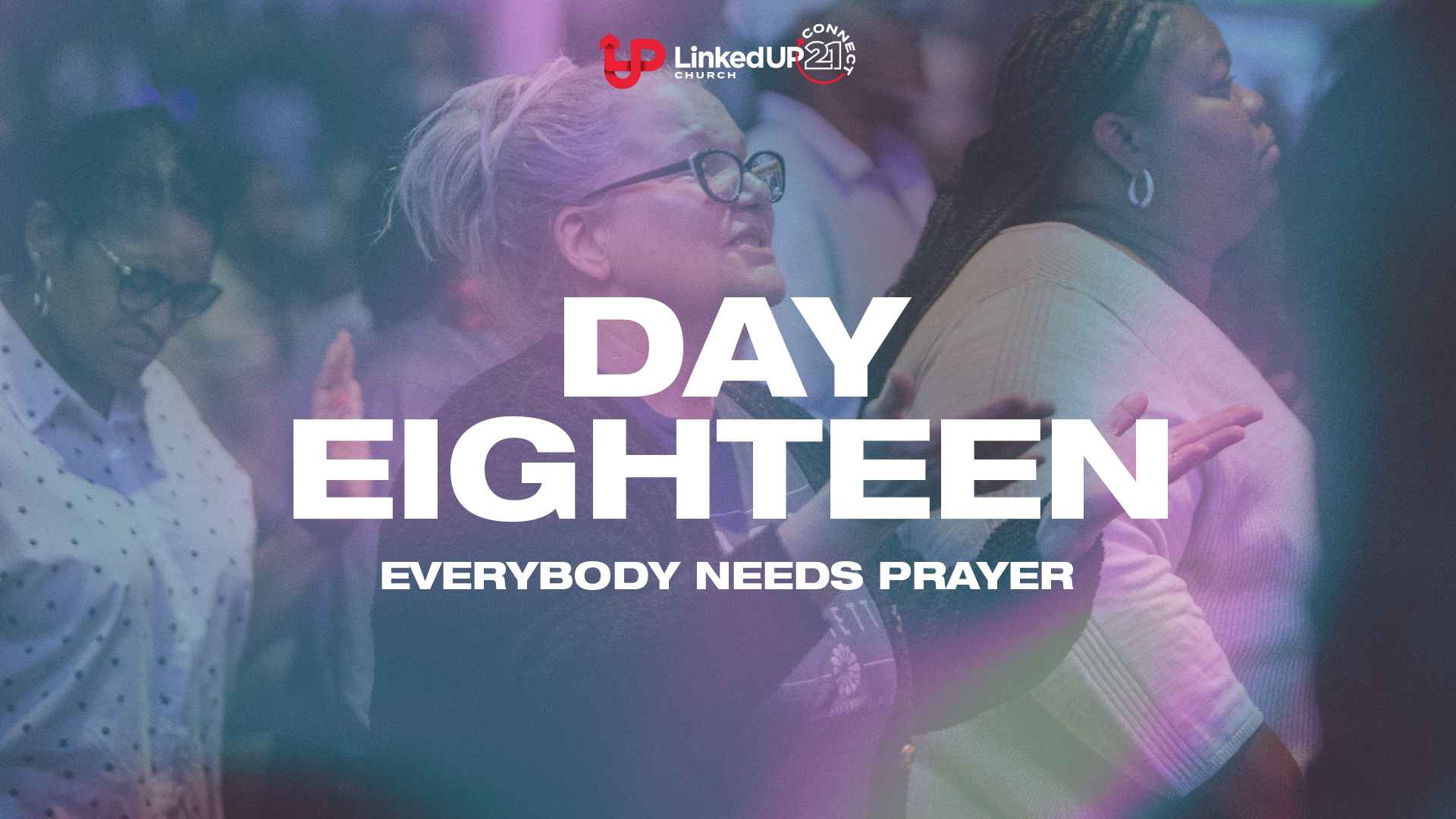Connect 21 - Prayer + Fasting - Reaching Resultsनमूना


Day 18 | Everybody Needs Prayer
As the world grows darker in terms of how people treat and respect one another, many, including believers, have turned to murmuring and complaining about all the spiritual wickedness they witness among our elected officials, world leaders, policemen, pastors, teachers, youth, neighbors, and so on. No one is immune from being the target of critical remarks.
However, Paul exhorts or strongly encourages believers to pray “for all men.” No matter how we feel about specific people, no one should be exempt from our prayers. If we really want our prayers to bring results, we cannot be biased. Who needs our prayers? The lost, the saved, the rich, the poor, the strong, the weak, the people we like, the people we don’t like, those who despitefully use us, and our enemies. That list is not exhaustive because everybody needs prayer.
Not only does Paul say that we are to pray for all men, but he also gives us specific people for whom to pray, “for kings and all who are in authority.” The people in authority can impact how quiet and peaceful our lives are. We must pray for the president and congress, kings of nations, wise leaders and tyrannical leaders, heads of state, judges, mayors, city council members, bosses, the heads of our families, classroom teachers, principals, Dream Team and Connect Groups leaders, and pastors, etc. We must pray for the leaders who have authority over our lives in any way. Everybody needs prayer.
Believers can sometimes make the mistake of believing that only godly leaders should be in positions of power. That sounds good in theory, but God allows wicked leaders in positions at all levels of authority so that His people can come to repentance and return to Him. King Ahab, King Saul, Herod Antipas, and King Ahaziah are just a few of the kings in the Bible who were called wicked.
Whether we like it or not, Daniel 2:21 says, “He removes and sets up kings.” God hears and answers our prayers, but He needs to hear them rather than complaints about how much worse things have gotten in the world. That only adds to the problem, and we want our prayers to produce results.
If you’re still wondering how we are supposed to pray for all men and those in authority, Paul addresses it by saying, “Supplications, prayers, intercessions, and giving of thanks” should be made for everyone. Supplication is when we recognize that we are in the presence of the King, and we position ourselves with the right attitude before we humbly make requests for a specific purpose. The second type of prayer is an act of surrendering everything to God so that our prayers can reflect His heart rather than our own selfish desires.
Intercession is a form of prayer that helps us to focus on others who need prayer, instead of focusing on ourselves. At any given time, the Holy Spirit could prompt us to pray for a specific situation or person. We do not have to agree with the way politics are run in our country before we can pray. We do not have to agree with our neighbor before we can pray. There may be people who do not know how to pray or cannot pray for themselves because of the situation with which they are faced. We are called to pray for them because everybody needs prayer. And when we have prayed according to His, we offer up the prayer of thanksgiving because we know that God will hear and answer our prayers.
Reflection: How often do you pray for others, including those in authority? Allow the Holy Spirit to direct your prayers as He brings to mind a specific person for whom you should pray.
Prayer: Heavenly Father, thank You for the privilege of prayer. I lift up the leaders across the globe, in my community, and in my church. Your Word reminds me that You appoint all authority, so I repent of any complaints that I have made against leaders, especially when You have commanded me to pray for them. Whether they do good or evil in Your sight, I will pray for them. In Jesus’ name. Amen.
पवित्र शास्त्र
इस योजना के बारें में

During Connect 21, we aspire to gain clarity in hearing God's voice and making His wisdom our guiding light throughout the year. To achieve this, we commit to subduing the desires of our flesh through fasting, redirecting the time spent on meals to prayer, and glorifying God. This spiritual discipline empowers us to experience God's presence and to witness His transformative power in our lives.
More




